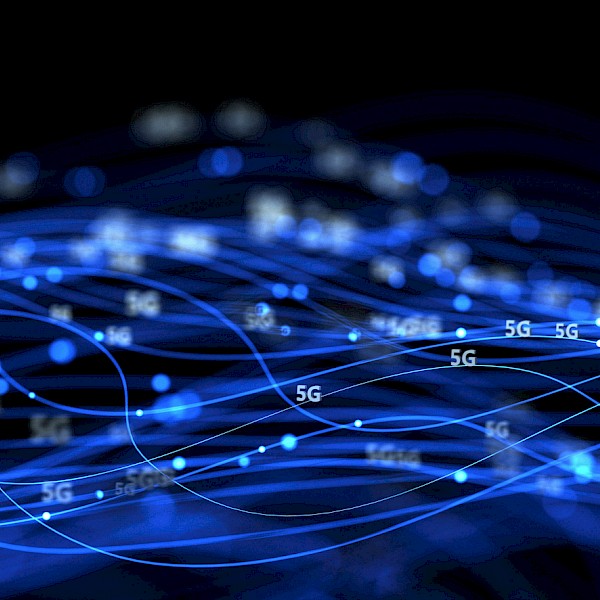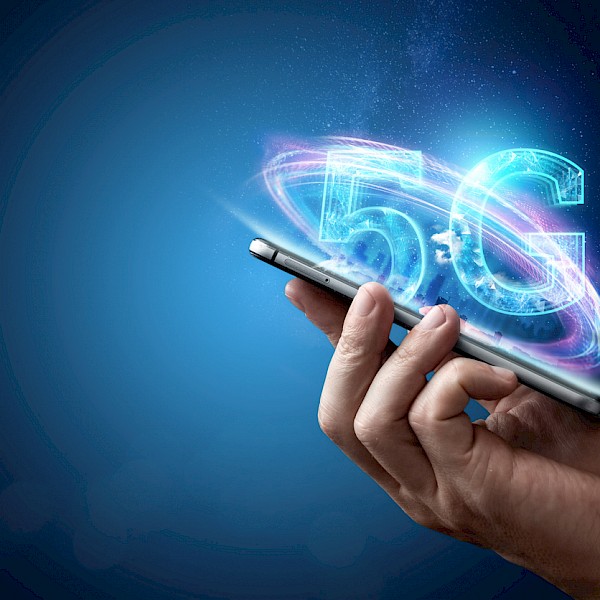What can we expect to see from 5G in 2020?



The roll-out of 5G technology is a major industry milestone – and it's set to have a huge impact on both businesses and on private users. Firstly, the fact that 5G comes with a whole host of benefits.
“[Key attributes include] higher bandwidth [and] faster download speeds,” says Martin Wicks, DevOps Engineer. “With that would likely come new services, new entrants disrupting existing markets, even new markets. For most people, that means higher quality video to their phone or other mobile device. It would mean less reliance on traditional broadband/Wi-Fi based connections for the higher-quality services people are used to. [And] it would mean 4K video capability on mobile devices – maybe even 8K.” In fact, with 5G, we may see latencies as low as 8 to 12 milliseconds and transfer speeds measuring in the gigabytes per second.


Nonetheless this isn't just about streaming TV – super-fast connections could unlock significant new capabilities for technologies such as voice interfaces, VR and AR and autonomous vehicles, all of which require large amounts of data to be processed and transferred to enable real-time responses. “It means being able to scale IoT to many, many more connected devices, and the widespread introduction of technologies such as driverless cars that rely on high speed, low-latency connectivity,” notes Martin.
Predictive maintenance systems – in which the condition of equipment is algorithmically monitored in real time, to anticipate failure before it occurs – will require the movement of vast amounts of data; by enabling this, 5G has the power to drive enormous benefits across industries ranging from utilities and infrastructure to transport and manufacturing. Equally, 5G will have a huge impact on processes where milliseconds make all the difference – whether deployed in the financial markets or for algorithms overseeing inputs across the length of the supply chain.
We may also see organisations twinning the technology with edge computing to segment workloads when delivering real-time responses for highly data-intensive processes.
But it doesn't end there. “On a more societal and cultural level it would open up high-speed internet connectivity to entire communities who currently lack that capability in broadband form [by allowing individuals to effectively use a mobile device as a home internet hub],” notes Martin. “On a more radical note it could eventually herald the creation of Smart Cities where IoT capability is applied to many, or all, functions and services within that city.”
While 5G might be the future, it's only gradually being distributed, however. “One would assume the slow roll-out is related to the requirement for bandwidth and capacity,” says Martin. “Assuming they don't currently have the capacity to roll 5G out to everyone, it's likely to be done on a gradual basis with initial deployment into large cities and places that offer the most lucrative consumer base. One would also assume that, like 3G and 4G before it, initial consumer costs for 5G will be significant compared to the current offerings but decrease over time, allowing for more widespread adoption.”


5G also differs significantly from previous generations of network technology – the short range of the high-frequency millimeter wave spectrum will require a larger number of masts to support the network. As these masts can be smaller than traditional masts, though, it may be possible to place them on buildings or on other structures.
In the meantime, the Samsung Galaxy S10 5G, released in March, became the first smartphone to be able to connect to 5G. One downside of the new standard, of course, is that your existing hardware will in all likelihood soon become obsolete. “It's likely that 5G will not support existing devices, so all of your existing mobile-capable devices would need to be replaced, at a cost,” notes Martin.
More ominously, 5G also presents a range of new avenues for cyberattacks. At the top level, distributed, software-defined digital routing and virtualized network functions create new opportunities for hackers to tackle the network itself; while 5G masts will also be targets.
There are also second-order implications. Increasing data exchange and the growing number of devices in use will present new attack surface for cyberattackers. If IoT devices are poorly secured or provide easy access to other systems then they may be significant liabilities. What's more, networked appliances and autonomous vehicles come with the potential to become far greater physical threats if misdirected than any digital devices that have existed in the past.
Due to of all this, DevOps teams should ensure that they are attuned to the changing terrain; while hardware providers should anticipate growing consumer demand for robust security standards.
And this will be particularly important for commercial users. As they have the most to gain from 5G, they are also likely to be among the first to adopt the new technology.
Ultimately, all of this points to the enormous potential that 5G can deliver. Martin comments, “5G has the potential to change the way we live – connecting more and more people, more and more devices, allowing the transmission of more and more data to allow emerging technologies such as blockchain, AI, IoT, Smart Cities, Big Data analytics, and so on, to flourish and transform the way we live as a society.
5G may just be the stepping stone to far greater things. The desktop era paved the way for Amazon and Google to become giants, while Uber was founded on mobile functionality and location data. Today, we can only dream of the platforms that will be built on 5G – but DevOps teams are no doubt already taking the first steps in creating brands and technologies that will transform the world of the future."

Empiric is a multi-award winning business and one of the fastest growing technology and transformation recruitment agency's specialising in data, digital, cloud and security. We supply technology and change recruitment services to businesses looking for both contract and permanent professionals.

Read more (pdf download)
Empiric are committed to changing the gender and diversity imbalance within the technology sector. In addition to Next Tech Girls we proactively target skilled professionals from minority groups which in turn can help you meet your own diversity commitments. Our active investment within the tech community allows us to engage with specific talent pools and deliver a short list of relevant and diverse candidates.
For more information contact
02036757777